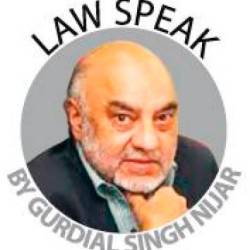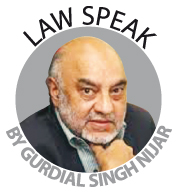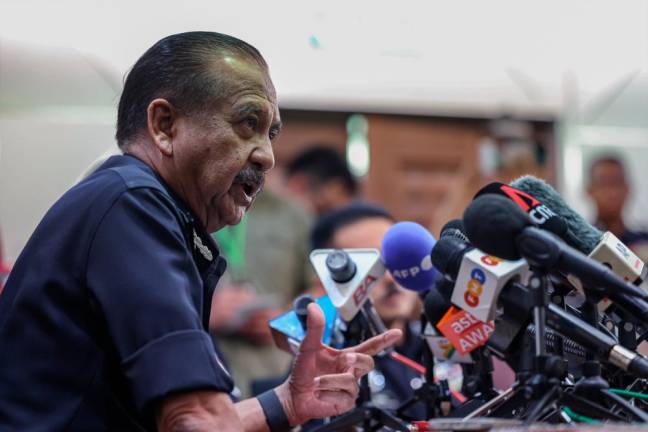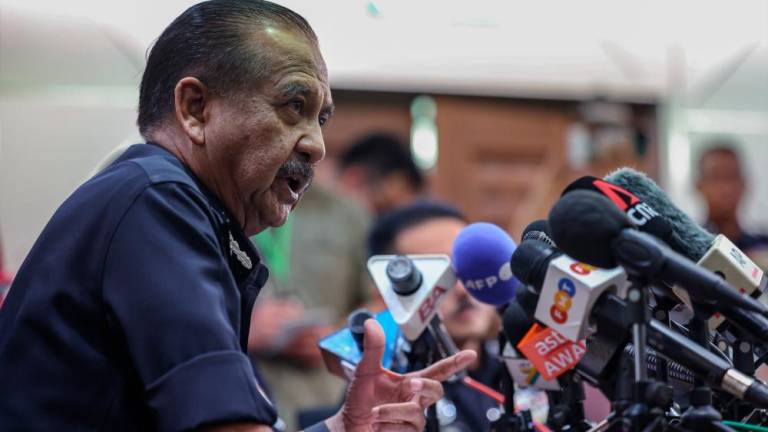PREDICTABLY, public outcry erupted when the prosecution withdrew criminal charges against Riza Aziz and Tan Sri Musa Aman. Riza is the stepson of Datuk Seri Najib Abdul Razak, while Musa was a former chief minister of Sabah.
Riza was charged for allegedly receiving US$248 million (RM1.05 billion) linked to 1MDB, and Musa for receiving kickbacks from logging companies totalling almost RM380 million and for money laundering.
Eight former Bar Council presidents swiftly weighed in with an unprecedented joint statement, questioning the lawfulness of the Riza withdrawal.
Concerned that the agreement for Riza to repay a mere 43% of the millions allegedly laundered would signal an accused can be exonerated if he agrees to pay back a fraction of the illicit proceeds.
They asked the AG (attorney-general as the public prosecutor) to rescind the settlement and reinstitute charges against Riza, on grounds the agreement could well be unlawful.
Closely following the Riza discharge, the AG withdrew a slew of charges against Musa. The court gave him a full acquittal barring any fresh charges against him.
The question that arises: does the AG have absolute discretion to decide as he did in these two high-profile cases?
The Federal Constitution has made the institution, conduct or discontinuance of any criminal proceedings a matter for only the AG to decide: Article 145(3). It is acknowledged that the AG has to weigh a host of factors in exercising his discretion and so should be given ample latitude to do so.
But is this power absolute? In short, can there be a challenge to the exercise of the discretion by the AG in ordering the discontinuance of cases?
The short answer is that he has no such absolute power. His discretion must be exercised in good faith. All legal powers, as our apex courts have repeatedly stressed, have legal limits. This even includes a power vested by the Constitution.
Else we have unfettered discretion – a concept that is wholly antithetical to the rule of law. This much was declared by the Federal Court in 1979. This is how the court expressed it:
Unfettered discretion is a contradiction in terms. Every legal power must have legal limits, otherwise there is dictatorship. In particular, it is a stringent requirement that a discretion should be exercised for a proper purpose, and that it should not be exercised unreasonably. In other words, every discretion cannot be free from legal restraint, where it is wrongly exercised, it becomes the duty of the court to intervene ...: Pengarah Tanah dan Galian, Wilayah Persekutuan v Sri Lempah Enterprise Sdn Bhd.
This “inviolable passage” has been approved by our Federal Court in two recent seminal decisions: Semenyih Jaya and Indira Gandhi.
Courts in the commonwealth have ruled in similar vein. The Singapore Chief Justice, for example, declaring thus:
“The discretionary power to prosecute under the Constitution is not absolute. It must be exercised in good faith for the purpose it is intended, ie, to convict and punish offenders and not for an extraneous purpose. ...The notion of a subjective or unfettered discretion is contrary to the rule of law ... The exercise of the prosecutorial discretion is subject to judicial review in two situations: first, where the prosecutorial power is abused, ie, where it is exercised in bad faith for an extraneous purpose, and second, where its exercise contravenes constitutional protections and rights (for example, discriminatory prosecution)”: Law Society of Singapore v Tan Guat Neo Phyllis [2007].
So recourse can be had to the courts in the exercise of their judicial power under Article 121(1) of the Federal Constitution, to right a wrong committed by the executive or other administrative authority.
This judicial power forms a fundamental construct of the basic structure of the Constitution and demands of the Judiciary to fulfil its independent sacrosanct role of keeping every organ and institution of the state within its legal boundary. This includes the AG.
The person must show a real and genuine interest in instituting the judicial review. In this case, an abiding interest in the administration of justice.
The Malaysian Bar’s statutory purpose includes “to uphold the cause of justice without regard to its own interests or that of its members, uninfluenced by fear or favour”. This clothes it with standing.
Our courts have acknowledged the role of the Malaysian Bar as an integral component of the justice system. And its right to act in the public interest.
As the Indian Supreme Court said, lawyers are “equal partners with the judges in the administration of justice”: Gupta v President of India [1982].
Finally, it is well to remember that in this age of accountability and transparency, it behoves high decision makers to assuage public disquiet by cogent and acceptable explanations for their action.
Else they risk an erosion of their authority and a diminution of the standing of the institution in whose name they exercise the public trust.
Gurdial a former law professor currently practises law. Comments: letters@thesundaily.com














